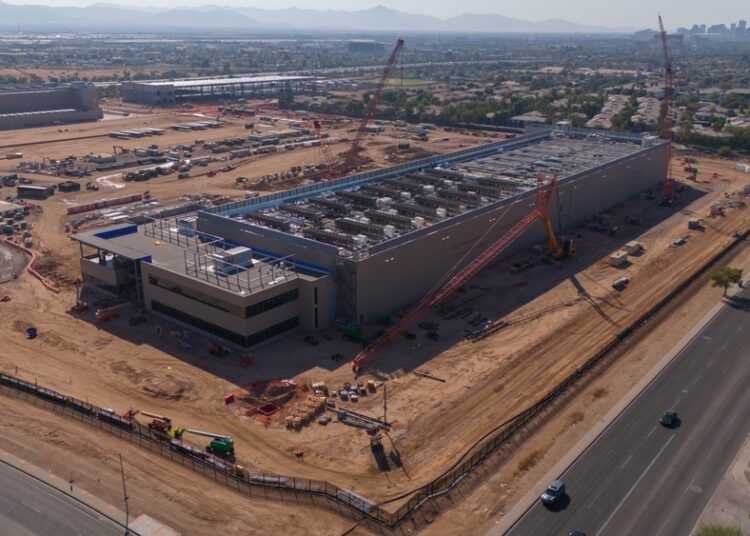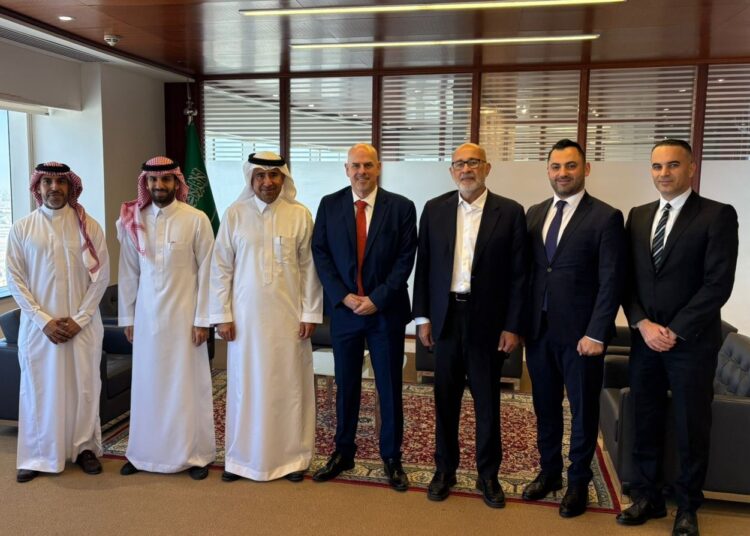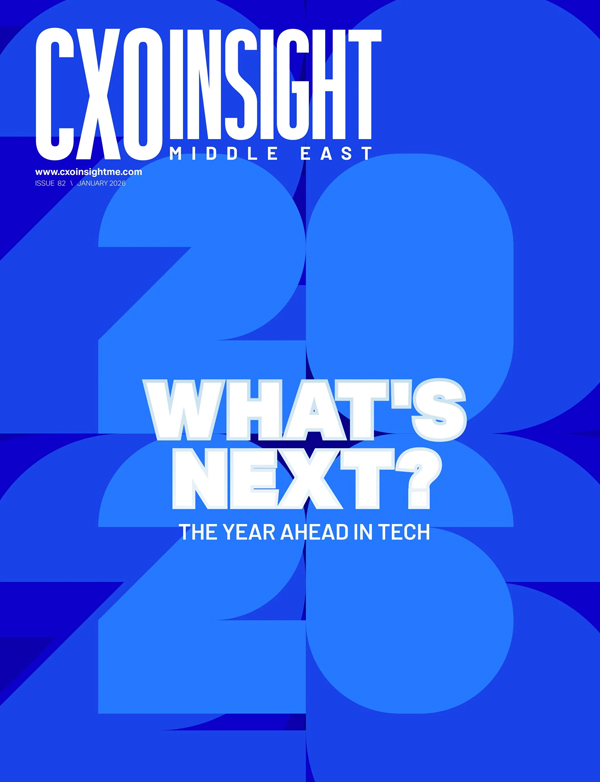As enterprises race to embed artificial intelligence across their operations, the real question isn’t whether AI will change the way we work—but how we design systems that are scalable, responsible, and culturally relevant. For Werner Vogels, Chief Technology Officer at Amazon Web Services, the key isn’t to idealise AI, but to understand it as part of a larger, evolving architecture of innovation.
“AI—what used to be known as machine learning—is simply the tool we use to make sense of data and extract real insights,” Vogels says.
This distinction underpins AWS’s entire approach to AI and reframes the role of data and the cloud as critical enablers of today’s intelligent systems. Without scalable, cost-effective access to storage and compute, the vast data foundations required for AI wouldn’t be feasible. “The shift really happened with the cloud,” Vogels explains. “Suddenly, storage became cheap, and companies could afford to keep all their data. But that created a new problem: how do you get insights from it? That’s where AI comes in.”
Vogels believes the journey to today’s AI-powered enterprises didn’t begin with ChatGPT or image generators—it began when cloud infrastructure made it viable to retain vast amounts of data without knowing in advance what questions it might answer. “In the ’90s, businesses were collecting data, but only if they knew what to ask,” he says. “Storage was expensive, so you couldn’t keep everything.” With cloud, that changed. But with abundance came complexity, and AI became the tool to unlock meaning from data. Now, as organisations increasingly describe themselves as “AI-first,” cloud computing has become foundational to that shift. “Cloud is the ideal environment for AI training,” Vogels explains. “You need massive compute capacity during the training phase, which might last a few weeks or months. But once that’s done, you don’t need that level of infrastructure anymore. That’s where the cloud’s elasticity becomes crucial. Scaling up is important—but being able to scale down and stop paying for unused capacity is where real cost efficiency comes in.”
Right AI for the right job
While generative AI has captured public imagination, Vogels cautions against viewing it as a universal solution. “Take self-driving cars for example,” Vogels says. “They use AI to interpret inputs like LIDAR, radar, and video feeds. But that’s not generative AI—it’s a different kind of intelligence focused on perception and precision. You don’t want a car making things up. You want it to follow exact rules and respond reliably to real-world conditions.”
The same principle applies to AWS’s own robotics systems. Fulfilment centre robots don’t figure things out on their own—they’re given specific instructions. “We tell them exactly what to do—and not to bump into each other. We don’t want them improvising,” Vogels notes.
He also sees many businesses rushing into AI experimentation without a clear cost-benefit analysis. “Everyone’s experimenting,” he says. “But they’ll soon ask: is the outcome worth the cost?” The economics of AI, much like early cloud adoption, demand a more mature, thoughtful approach over time.
The real challenge
Despite the technological momentum, Vogels says the biggest barrier to AI adoption isn’t innovation—it’s skills. “The technology part isn’t the problem. The challenge is the skills gap,” he explains.
While AI tools have advanced rapidly, especially with the rise of conversational chatbots, applying them in complex enterprise environments requires much deeper expertise. “It might seem like anyone can use AI now,” Vogels explains. “But if you want to optimise a supply chain with it, you need people who truly understand the technology. Most students graduating even a year ago haven’t been trained on this.”
This isn’t a shortcoming of education, Vogels clarifies, but rather a sign of how quickly the field is moving. “I’ve always believed the role of universities is to teach students how to learn—not to finish learning. Especially in engineering, the real learning begins once you’re on the job,” he says.
At Amazon, he notes, it can take junior engineers up to a year before they become significant contributors.
Generative AI, however, is changing how quickly that learning curve can be overcome. “Before, junior engineers learned by sitting next to senior ones and asking questions. But if you asked the same question twice, the senior would get frustrated,” he says. “Now, with a generative AI assistant, you can ask those questions over and over—‘Why did they do this?’—and get an answer every time. It’s like having a mentor who never gets tired.”
Vogels also sees a massive opportunity to modernise legacy systems—millions of lines of business-critical code still run on outdated languages like COBOL and Fortran. “No one learns those in school anymore,” he says. “But with automation, we can translate them into modern programming environments, like serverless platforms on AWS, almost automatically.”
To support this transformation at scale, AWS is investing significantly in education. “We’ve committed to training over 700,000 people across Asia in AI and cloud technologies,” Vogels says. “Even the smartest students still need structured, continuous learning.”
Responsible AI Starts with data
For Vogels, responsible AI deployment starts with three key priorities: security, governance, and cost awareness. “Security will always be number one,” he says. “It’s where we invest the most—and always will.” Enterprises need to set strict guardrails around both the data being fed into models and the outputs being generated. Especially in high-stakes environments, hallucinations aren’t acceptable.
“You can’t afford hallucinations in enterprise applications,” Vogels notes. “You need to be able to say: this is what the system can do—and no more.” AWS addresses this with a technology called automated reasoning, a field of AI far more complex than generative models. “Automated reasoning lets you test all possible answers and reject what doesn’t make sense. That’s critical,” he explains.
He also warns that too few companies are thinking clearly about cost. “In the early cloud days, innovation was more important than cost,” he says. “But eventually, people got serious about pricing. We want them to have that mindset now with AI—not five years later.”
With AI and cloud computing becoming critical parts of national strategies, data sovereignty and cloud resilience have become critical—especially in regions like the Middle East and North Africa. “Your data is your data,” Vogels emphasises. “We don’t own it. We don’t access it. And there are no backdoors.” AWS gives customers full control over their encryption keys. Even AWS engineers can’t access data unless explicitly granted access by the customer. “It’s not just about geopolitics. Encrypting your data is the best protection—always has been,” he says.
Sovereignty, however, is defined differently in different regions. In Europe, AWS is building a sovereign cloud where only European citizens can operate the systems. In the United States, GovCloud ensures access is limited to US nationals. In the Middle East and North Africa, regionally hosted infrastructure combined with encryption-led controls helps customers meet local regulations and expectations. “It’s about giving customers tools, choice, and control,” Vogels says.
He adds that resilience is equally important. “Each AWS Region has at least three data centres. So even if one goes down, operations continue. That level of resilience is extremely hard to build on your own.”
Culturally intelligent AI
As AI systems become embedded in daily life, Vogels stresses the need for cultural context. “Simply translating a model doesn’t make it local,” he says. “A Western-trained LLM might suggest something that doesn’t align with local customs. An Arabic-language model wouldn’t—it understands the cultural context.”
AWS supports the development of culturally grounded models. In Saudi Arabia, for example, an LLM was trained entirely on Saudi text, enabling it to respond in ways aligned with local values and expressions. The Falcon model, developed by the UAE’s Technology Innovation Institute and hosted on AWS, was similarly designed to reflect the needs of Arabic-speaking users. In Southeast Asia, the SeaLLM model was trained on 11 regional languages to ensure local relevance across diverse populations.
“Localising language for LLMs doesn’t simply mean translating words—it’s about capturing culture, values, and context,” Vogels explains. “And some topics are talked about more—or less—in different cultures.” This is why localisation matters—not just for accuracy, but for respect and meaningful engagement. He envisions a future where diverse models co-exist and learn from one another. “The future won’t be dominated by a single global model,” he says. “It will be shaped by many—each rooted in the culture it serves.”










Discussion about this post